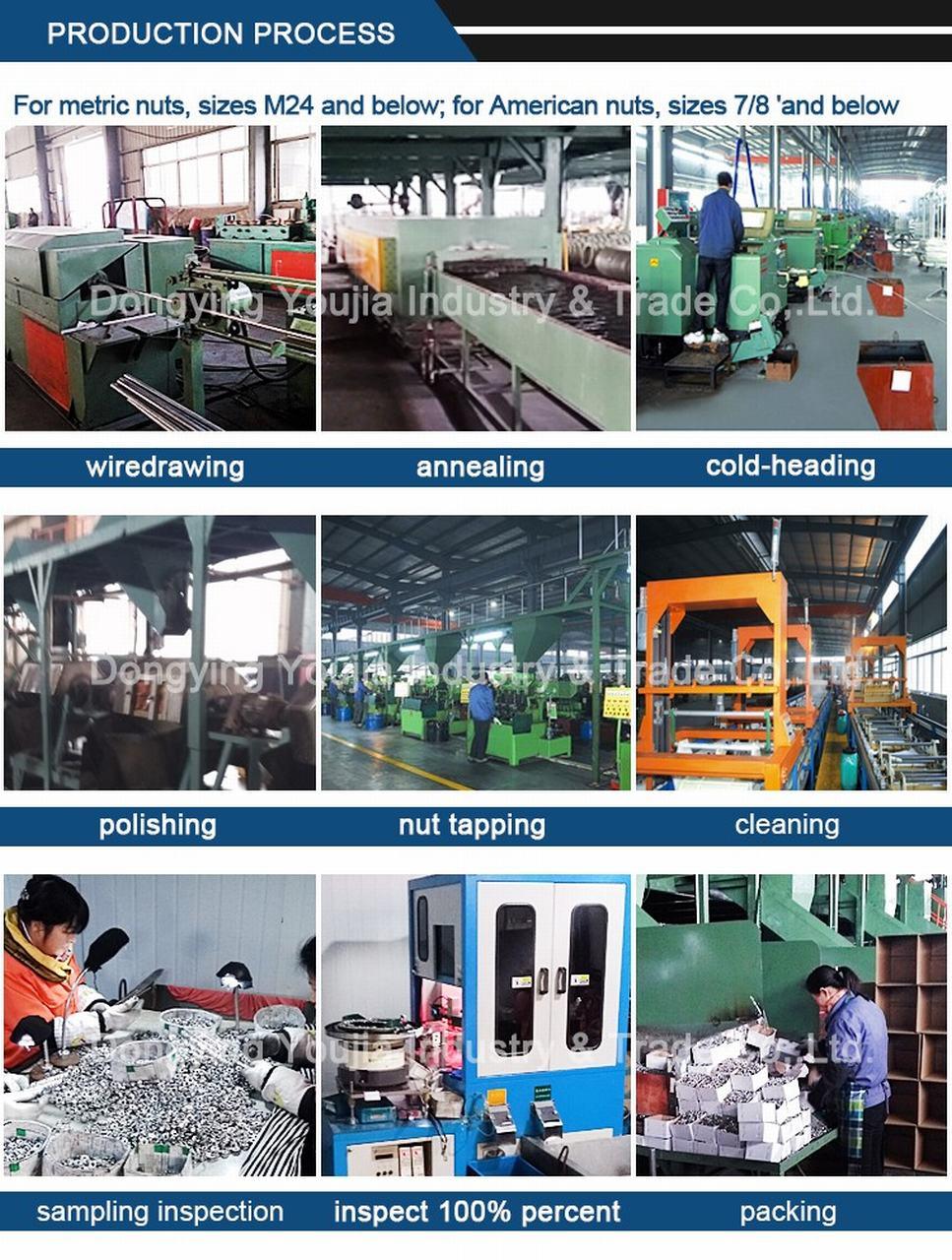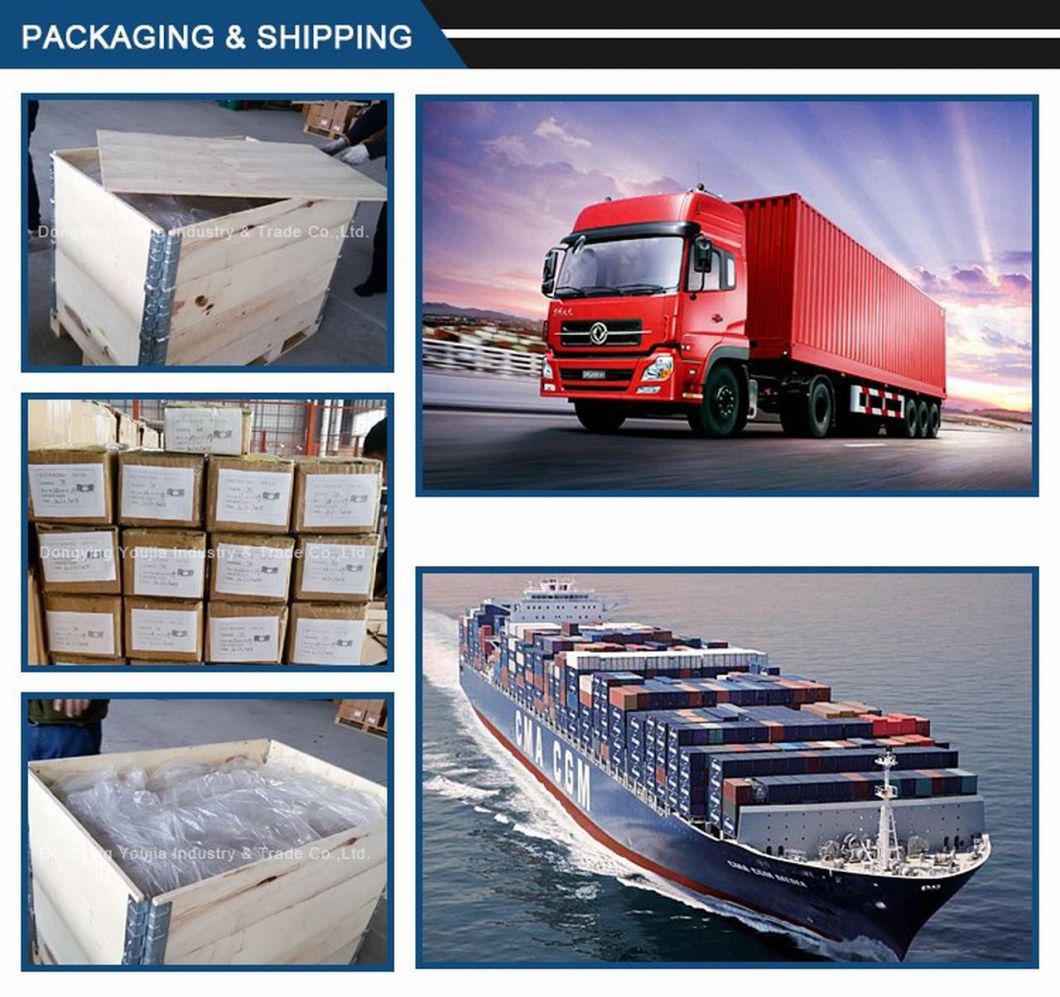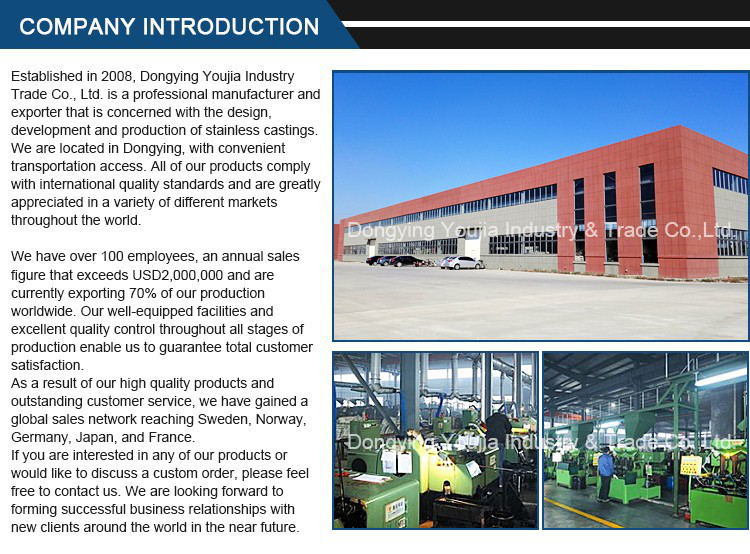
| Materials: | Carbon steel, Alloy steel, Stainless steel |
| Surface Treatment: | Plain, Black, Zinc Plated (ZP), Yellow Zinc Plated (YZP), Hot Dip Galvanizing (HDG), Dacromet |
| Grades: | 4.8, 8.8, 10.9, 12.9, A2-70, A4-70 |
| Standards: | DIN, ISO, GB, JIS, ASME, ANSI, Non-standard, Custom Drawing |
| Certification: | ROHS, REACH |
| Thread: | Metric Coarse, Metric Fine, UNC, UNF, BSW, BSF |
| Sizes: | M1.4 - M42, 1/8 - 4 inches |
| Packing: | Small Box / Carton, Cartons Bulk / Pallet, Gunny Bag |



100% Customer Satisfaction Guarantee
If for any reason you are not completely satisfied with your purchase, simply return it for exchange, replacement, or refund.
FAQ
1. What are your main products?A: Fasteners, bolts, nuts, screws, washers, and more.
2. Do you have a minimum order?
A: No, we accept orders of any size — whether small or large.
3. Do you have a minimum quantity?
A: No, you can order any quantity you need.
4. What is your delivery time?
A: If we have stock, we can deliver within 3 days after payment. For custom production, it usually takes 20 days per container (20-26 tons).
5. What is your payment term?
A: We typically require a 30% advance payment via T/T, with the remaining 70% before shipment.
6. How is your quality? And what if we are not satisfied with your quality?
A: We produce according to your specifications. If the quality does not meet your expectations, we will refund you.
7. What about the warranty?
A: We are confident in our products and ensure safe packaging to protect your goods during transit.
To avoid future issues, please inspect the goods upon arrival. If there is any damage or quality problem, take clear photos and contact us immediately. We will handle it promptly to minimize your loss.
A: As we have thousands of products, it’s difficult to send all of them. Please let us know which items interest you, and we’ll provide a detailed price list for your reference.

Thermoforming is a manufacturing process used to shape plastic sheets into various custom design products. It involves heating a plastic sheet until it becomes pliable, then using a mold or a vacuum to form it into the desired custom shape.
Thermoforming and vacuum forming are both processes used to shape plastic sheets into specific forms. However, there are some differences between the two techniques:
1. Process: In thermoforming, a plastic sheet is heated until it becomes pliable, and then it is pressed against a mold using pressure or a vacuum. Vacuum forming, on the other hand, relies solely on the use of a vacuum to draw the heated plastic sheet onto the mold.
2. Mold complexity: Thermoforming is typically used for more complex shapes and intricate molds, as it allows for greater detail and precision. Vacuum forming, on the other hand, is better suited for simpler shapes and molds that do not require as much detail.
3. Material thickness: Thermoforming is often used for thicker plastic sheets, typically ranging from 0.030 to 0.250 inches in thickness. Vacuum forming is more commonly used for thinner plastic sheets, typically ranging from 0.005 to 0.060 inches in thickness.
4. Production volume: Thermoforming is generally more suitable for high-volume production due to its faster cycle times and ability to handle larger sheets of plastic. Vacuum forming is better suited for low to medium volume production, as it has slower cycle times and is limited by the size of the vacuum forming machine.
5. Cost: Thermoforming typically requires more expensive equipment and molds, making it a more costly process compared to vacuum forming. Vacuum forming, on the other hand, is a more cost-effective option for smaller production runs or prototypes.
Overall, thermoforming is a more advanced and versatile process that offers greater precision and complexity, while vacuum forming is a simpler and more cost-effective option for less complex shapes and smaller production volumes.
Thermoforming is a versatile process that is widely used in industries such as packaging, automotive, aerospace, and medical. It offers advantages such as cost-effectiveness, quick turnaround times, and the ability to produce complex shapes with high precision.
Custom Thermoforming,Thermoforming Plastic Products,Thermoforming Process,ABS Thermoforming
Dongguan Yiyongli Industrial Co.,Ltd. , https://www.absthermoforming.com